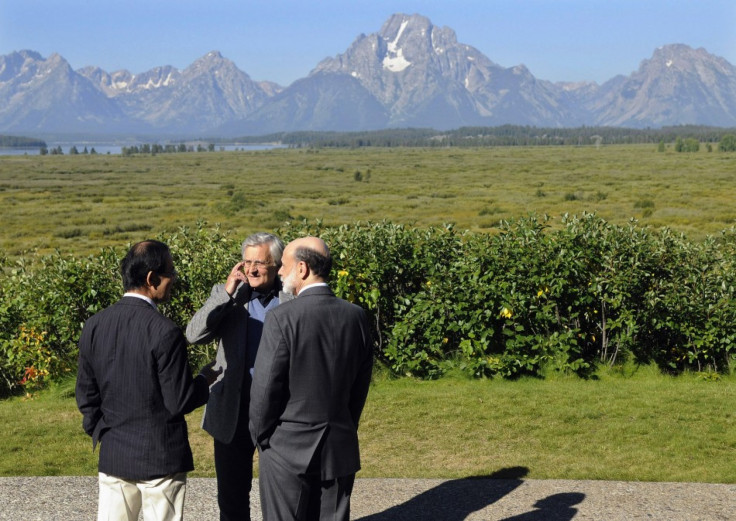Bernanke Speech: How is it Affecting Markets?

Fed Chairman Ben Bernanke offered not hint Friday that the U.S. central bank would take fresh steps to energize the nation's weak economy in a closely-watched speech that hammered stocks but lifted precious metals.
Instead, Bernanke expressed optimism about the economic recovery and placed the onus for intervention squarely on the Congress and the Obama administration.
Most of the economic policies that support robust economic growth in the long run are outside the province of the central bank, he said in prepared remarks to an annual symposium in Jackson Hole, Wyo.
Notwithstanding the severe difficulties we currently face, I do not expect the long-run growth potential of the U.S. economy to be materially affected by the crisis and the recession if -- and I stress if -- our country takes the necessary steps to secure that outcome, he said before discussing how Washington should and could get its fiscal house in order.
To achieve economic and financial stability, U.S. fiscal policy must be placed on a sustainable path that ensures that debt relative to national income is at least stable or, preferably, declining over time. As I have emphasized on previous occasions, without significant policy changes, the finances of the federal government will inevitably spiral out of control, risking severe economic and financial damage. The increasing fiscal burden that will be associated with the aging of the population and the ongoing rise in the costs of health care make prompt and decisive action in this area all the more critical.
Treasuries rose and the S&P 500 index, which was already down before Bernanke began speaking, accelerated its drop to 1.15 percent. The Nasdaq composite was down 0.5 percent.
The price of gold for December delivery, the most actively traded contract on the CME Comex division of the New York Mercantile Exchange, jumped $16.90, or about 1 percent, to $1,780.10 from Thursday's closing price of 1,763.20 an ounce.
The ICE U.S. Dollar Index was down 0.326 percent.
A year ago, when Bernanke last spoke at the Jackson Hole, Wyo., symposium, his speech laid the groundwork for what turned into a $600 billion buying spree of U.S. government debt. That initiative, which increased the central bank's balance sheet to $2.3 trillion in longer-term securities, boosted the price of Treasuries and injected lots of money that energized the stock market. The buzz lasted into early 2011.
But in the past four weeks the stock market has fallen more than 13 percent, Commerce Department figures released Friday show the economy advanced in the spring at a 1 percent annual rate and unemployment remains stubbornly above 9 percent. Worst of all, some economists see a double-dip recession coming.
So far in August, the Standard & Poor's 500 Index has fallen 10 percent -- a figure that papers over some of the gut-wrenching daily drops and mind-bending volatility.
But stock market investors spent much of this week driving share prices higher on the premise that the Fed would have to begin to snap up more bonds to push borrowing costs lower. The S&P rose nearly 5 percent through Wednesday before the reality began to set in Thursday that Bernanke was unlikely to lay out any bold policy initiatives.
© Copyright IBTimes 2024. All rights reserved.












